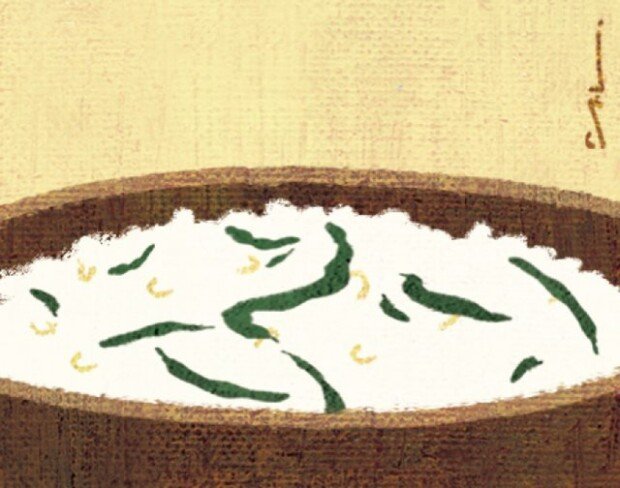Poem ‘Gondrebap’
Poem ‘Gondrebap’
Posted April. 24, 2021 07:13,
Updated April. 24, 2021 07:13

We have people who wish to remember forever after bidding farewell. Those people are my favorites. The same holds true with poetry books. We have poems that we always remember even after closing the book. People and poems created by people are largely the same in this context. Poems that we can remember after a long time are our favorite poems.
“Gondrebab (rice with thistle)” by poet Kim Ji-heon is one of such poems. If you ask why, the first answer is “no reason.” As if we often don’t have any specific reason why we like certain persons, there is no specific reason why our heart and mind like certain poems. If you insist on answering, I would say the poem is like a scene in a movie.
In movies, certain scenes only feature background music and actress’ performance with actors and actresses saying not a single word. Even if there no words spoken, we can sufficiently and easily understand the director’s intention. This poem consists of words, but looks like a muted scene in a movie. The protagonist opens the freezer, and takes out gondre (thistle) and boil it with rice. Sitting all alone in the table, the protagonist put in soy sauce, and mix it with the rice and thistle before eating a bowl of the rice. The protagonist no longer feels hungry and lonely in his stomach, but still looks lonesome in the face. Our eyes close up the protagonist, and end up reading the final sentence. The protagonist cool-mindedly and indifferently lives life wherein she is merely a supporting actress no matter how hard she strives.
Gondre, the protagonist, and supporting actress in our life are individually three, but one after all. The poem has the power to integrate the three into one. The poem also has the power to catch the integrated one and live it through. For this reason, we repeatedly come to reflect – I come to think, that soft gondrebap should be most precious on earth.
Headline News
- Med professors announce intention to leave hospitals starting Thursday
- Bridge honoring Sgt. Moon Jae-sik unveiled in Pennsylvania
- Chief of Staff Chung tells presidential secretaries to stay away from politics
- US FTC bans noncompete agreements
- N. Korea launches cyberattacks on S. Korea's defense companies







